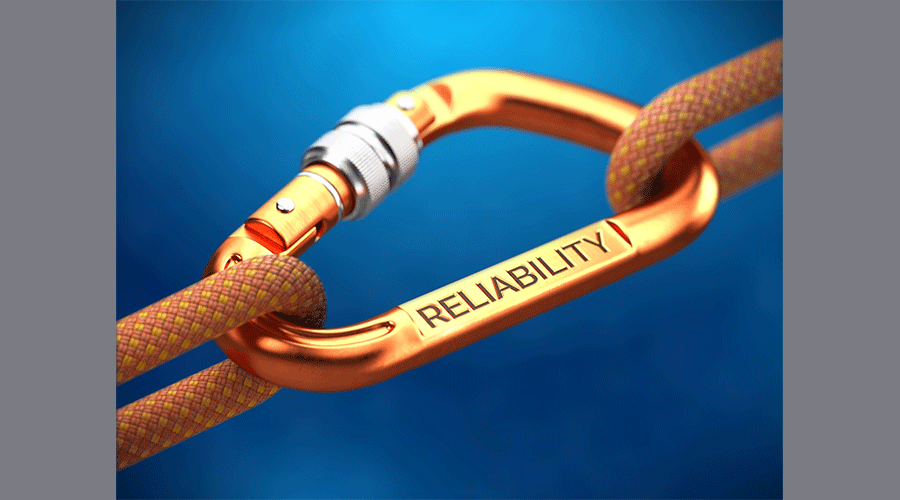How reliable are healthcare facilities? The question is not easy to answer, in part because healthcare facility managers do not often consider their facilities in that way. Given the fallout from the COVID-19 pandemic, as well as ongoing pressures related to energy efficiency, sustainability and safety, managers have more than enough to keep them busy.
But managers addressing these challenges while aiming for operational excellence in their facilities need to consider the potential benefits of reliability asset management (RAM), also referred to as reliability-centered maintenance (RCM). It can help determine the maintenance requirements of any physical asset, and it can identify opportunities to evolve outdated, calendar-based maintenance strategy into one that reduces risk based on evidence of need.
More specifically, RAM can help managers eliminate or reduce system and equipment failures, improve system and equipment performance, extend the life of assets, and optimize the maintenance program to maximize resources.
What is holding back managers from embracing the concept of reliability? After all, airlines adopted RAM in the 1960s, the U.S. military did so in the 1970s, as did the nuclear industry in the 1980s and Disney properties in the 1990s. The issue was the topic of a panel discussion, Decomplicating the Mystery Around Reliability Asset Management, at the ASHE National Conference in Boston in July. The interactive session revolved around discussion of attendees’ real-time digital responses to five questions.
The first question was a check on the status of RAM in healthcare facilities. Attendees were asked, “Are you currently leveraging RAM concepts in your facilities?” About 75 percent said they are considering it, 16 percent said they have started to implement it, and 6 percent said they are not engaged.
The second question was more specific: “Do you have an active RAM program in place?” 81 percent said yes, and 19 percent said no.
The panel discussion of implementing RAM involved a closer look at the need for managers to have accurate facility-related data on which to base their decisions.
“Data is good, and actionable data is great,” said Rick Joslin, senior advisor, healthcare strategy, with Accruent. “That’s what allows you to make smart choices.”
Added Andy Woommavovah, system director of facility management, construction, energy and infrastructure, Trinity Health, “Data is what helps you answer questions about maintenance staffing needs.”
The discussion then turned to roadblocks to reliability. Attendees were asked, “What are the barriers to RCM in your organization?” Thirty-one percent of respondents said staffing, 28 percent cited training, 21 percent identified resources and 20 percent said C-suite buy-in.
Next, panelists discussed the ability of RAM to enable departments to identify and prevent failures in equipment and systems – a critical benefit given that only 8-23 percent of failures are age-related, while a whopping 77-92 percent of equipment failures are random, according to date from Reliabilityweb.
Attendees were asked, “Are your facilities now experiencing failures?” Ninety percent of respondents said yes, while only 10 percent said no.
Finally, attendees were asked, “Are you interested in joining a RAM/RCM community?” 79 percent said yes, while 21 percent said no. The positive response to the question leaves the door open for more managers to explore and even embrace a maintenance strategy that offers the potential to both improve facility reliability and enhance patient care.
Dan Hounsell is senior editor of the facilities market. He has more than 25 years of experience writing about facilities maintenance, engineering and management.

 Healthcare and Resilience: A Pledge for Change
Healthcare and Resilience: A Pledge for Change Texas Health Resources Announces New Hospital for North McKinney
Texas Health Resources Announces New Hospital for North McKinney Cedar Point Health Falls Victim to Data Breach
Cedar Point Health Falls Victim to Data Breach Fire Protection in Healthcare: Why Active and Passive Systems Must Work as One
Fire Protection in Healthcare: Why Active and Passive Systems Must Work as One Cleveland Clinic Hits Key Milestones for Palm Beach County Expansion
Cleveland Clinic Hits Key Milestones for Palm Beach County Expansion